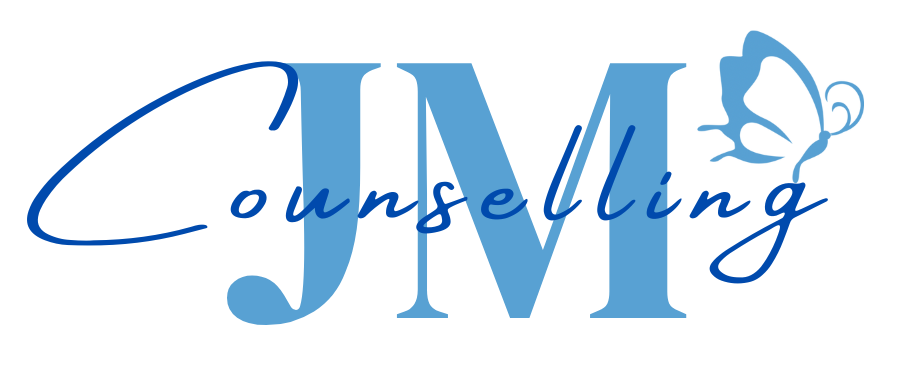Cognitive Behavioural Therapy
Cognitive Behavioral Therapy (CBT) is a type of talk therapy that can be helpful in treating a wide range of mental health conditions, such as anxiety, depression
Life can be a challenge and admitting you need help is the first part of making things better.
It may not feel like it at the moment but you really don't have to continue feeling how you do right now.
Cognitive-behavioural therapy (CBT) is a form of psychological treatment that has been shown to be effective for a variety of mental health concerns, including anxiety, depression, and stress.
Here are some ways that CBT can help:
Overall, CBT is a practical and effective approach to therapy that can help you gain insight into your thoughts and feelings, develop coping skills, and improve your mental health and overall quality of life.
It's time to take back control and be the driving force of your life going forward. I will be there to hold your hand as you learn how to discover your strengths, overcome challenges and get clear about what it is you actually want.
This all starts with a simple conversation, just reach out for an chat.
Don't struggle alone. Get the help you need today
Common questions I get around Cognitive Behavioural Therapy...
Click on your FAQ
CBT stands for Cognitive Behavioural Therapy. It is a form of talk therapy that focuses on changing negative patterns of thought and behaviour that may be causing or contributing to mental health issues.
CBT is based on the idea that our thoughts, feelings, and behaviours are interconnected. The therapy involves identifying negative patterns of thought and behaviour, challenging and changing those patterns, and developing more positive and effective ways of thinking and behaving.
CBT has been shown to be effective in treating a range of mental health issues, including depression, anxiety disorders, phobias, obsessive-compulsive disorder (OCD), post-traumatic stress disorder (PTSD), eating disorders, and substance abuse.
The number of sessions needed varies depending on the nature and severity of the issues being addressed, as well as the client's individual needs. Some clients may benefit from only a few sessions, while others may require longer-term therapy.
In a CBT session, you will work with a therapist to identify negative patterns of thought and behaviour, challenge and change those patterns, and develop more positive and effective ways of thinking and behaving. The therapist may also give you homework assignments to practice outside of therapy sessions.
While some forms of therapy may focus heavily on the past, CBT is primarily focused on the present and future. However, it may be helpful to explore past experiences that have contributed to current issues.
CBT can be an effective treatment for many people, but it is not a one-size-fits-all solution. It may not be the best approach for everyone, and it is important to work with a mental health professional to determine the most appropriate treatment for your individual needs.
Sessions are normally weekly initially and then dialled back to once every two weeks for as long as you need them.
I don't normally see people for single or adhoc sessions as this rarely builds lasting change.
Similar to coaching, CBT requires active participation in solving your problems. It isn't just about talking through your problems. It's about discussing them, understanding them more fully, and developing strategies that you will implement to improve your situation and how you feel.
Some forms of counselling concern themselves purely with the past and how they affect your present day feelings. CBT takes the next step by helping you focus on your present situation and what you can do to change it for the better.
While some forms of counselling focus largely on coming to terms with the past, CBT helps you understand how your thoughts, feelings and behavours are connected, and how by changing any one of these things you can affect the others.
In short, CBT is about giving you a toolkit to cope with the ups and downs of life.
What Clients Say
Calm and supportive style
I met Julie online and love being part of her supportive community. I have benefited tremendously from her love and support. I highly recommend Julie as a coach. Her calm, informative and supportive style as well as her willingness to go the extra mile is just awesome.
Didn't rush me, let me go at my pace
Worked with Julie for a few months, to deal with childhood trauma amongst other things that I felt were holding me back on life. After nearly 50 years thought it was about time I dealt with it. Julie is goatskin understanding. Didn't rush me, let me go at my pace and gave tools to deal with things.
Genuine and empathic
I needed help after discovering some devastating personal news. I didn't know how to deal with the revelations and Julie helped me to learn to process the very sensitive details for myself whilst offering support and reasoning of what I am experiencing in a very genuine and empathic way.
My Approach
I offer an integrative approach to counselling. This approach emphasises the importance of the therapeutic relationship and focuses on the client's strengths, resources, and resilience. Using this approach I am able to combine different theories and techniques from various therapeutic modalities to provide you with a personalised treatment.
My goal is to provide a safe and non-judgmental space where you can explore your thoughts, feelings, and behaviours and gain insight into your experiences both past and present.
Why can you trust me?
Qualifications:
Certificates available to view on request
Don't struggle alone. Get the help you need today
Call or Text
